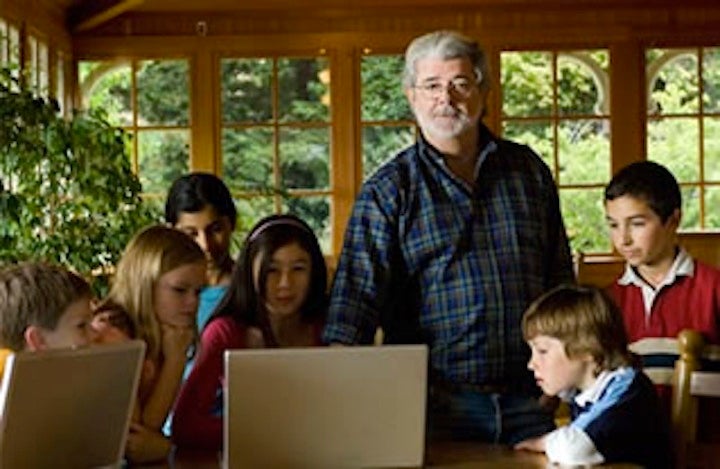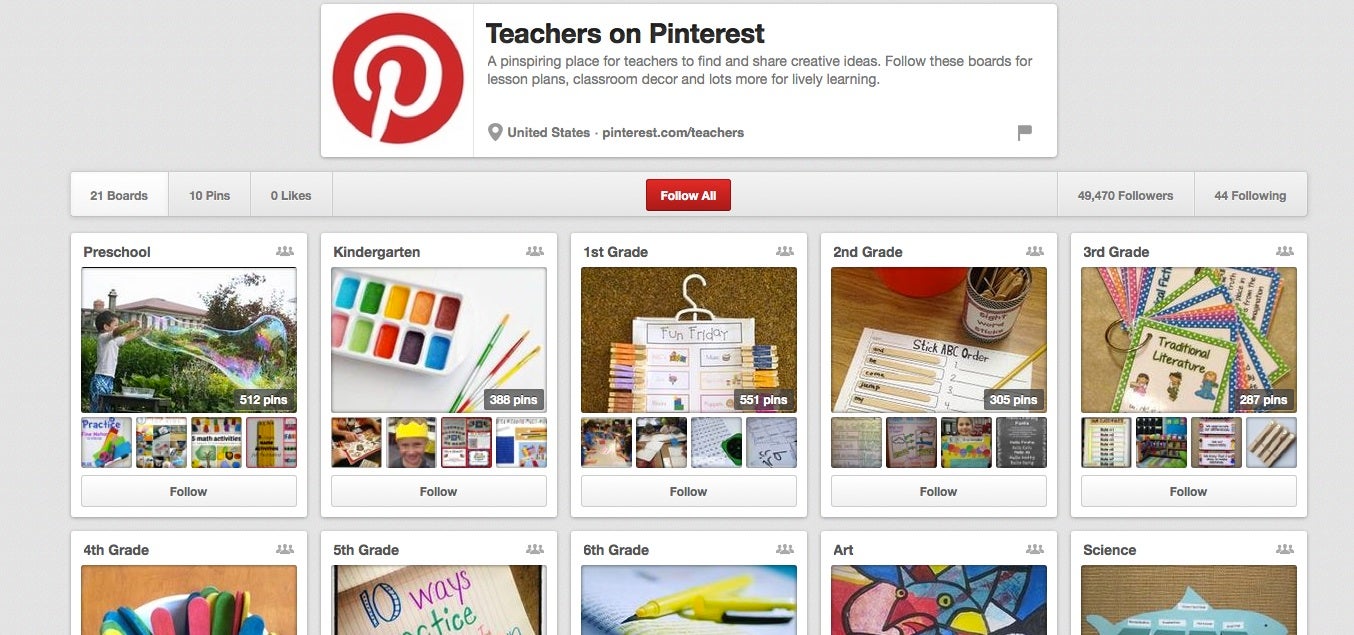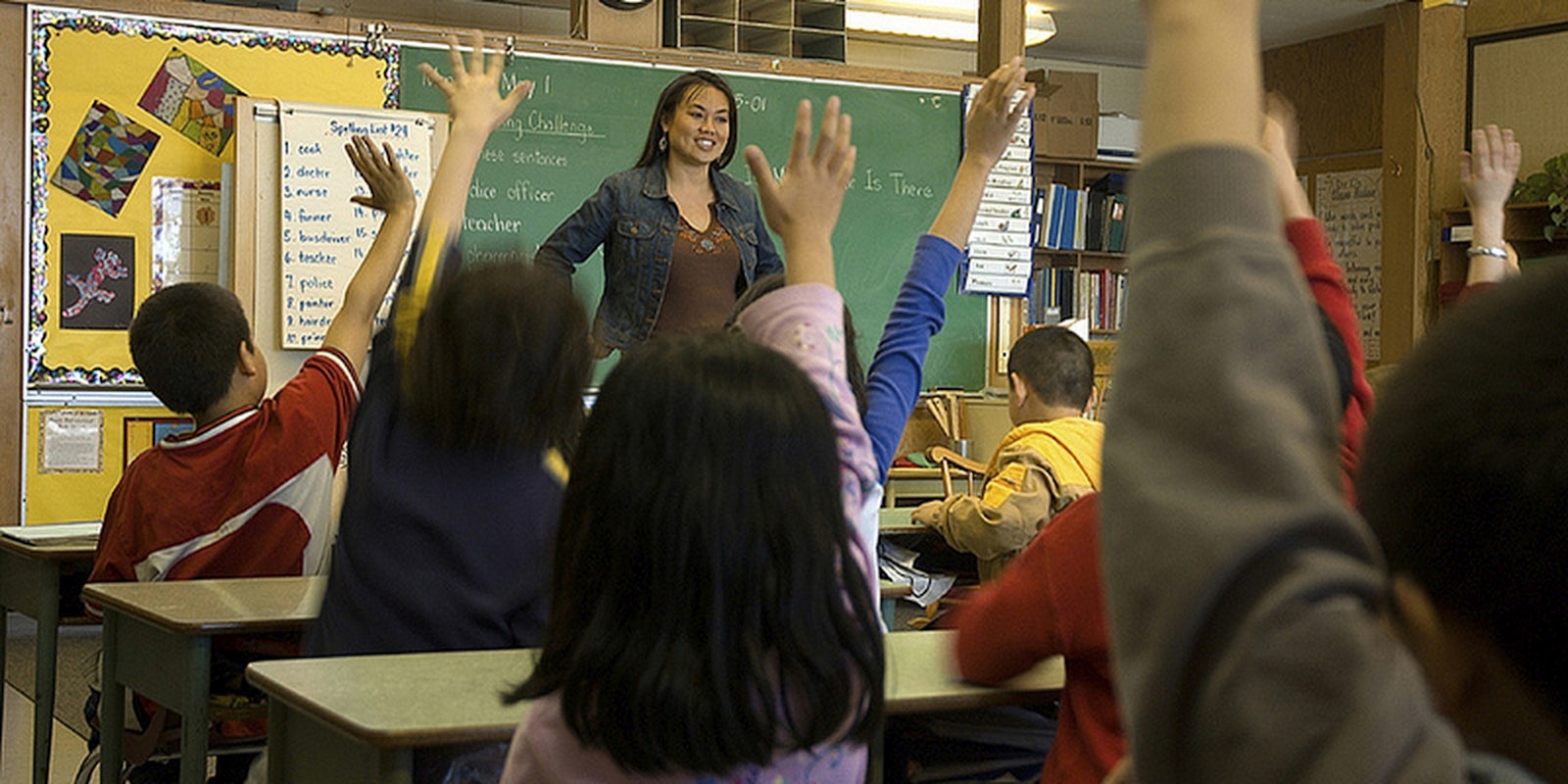As teachers across the country head back to school, instructors at all levels will be trying to create open environments in their classrooms and engaging lessons.
In today’s digital age, some teachers are finding inspiration in an unlikely place: Pinterest. While the virtual pinboard site is well-known as a place for collecting photos of your favorite food, fashion, and art, it can also be a tool for educators.
Pinterest made that clear in August when it officially launched Teachers on Pinterest, an educational resource with 21 boards that cover grades from preschool to sixth, a variety of subjects such as math and science, and topics like classroom decor and homeschooling. Many of the boards contain ideas for projects and activities as well as advice for how to make topics more interesting to students. They also include tips for the best ways to organize classrooms, lesson plans, and more. The ideas come from educators across the country, inspiring teachers to think beyond what they may normally see in their own schools.
The social network partnered with the George Lucas Educational Foundation, Edutopia, and asked a group of teachers already pinning to contribute to each of their boards.

“I’ve seen Pinterest in particular used throughout the year for professional-development,” Elana Leoni, Edutopia’s director of social media strategy and marketing, told the Daily Dot. “Whether they need to learn more about classroom management or project-based learning, they can create and curate boards to support them.”
Edutopia is no stranger to promoting social media use by teachers. In the past, the organization has worked with Twitter, Facebook, and YouTube. Leoni said it’s no longer a question of if educators need to be proficient in social media.
“The question should be ‘how’ and ‘to what level,’” she said. “Social media makes it possible to break down the isolation that many classrooms and schools face.”
Suzy Brooks has been using Pinterest for over two years and contributes to the Teachers On Pinterest fourth grade board.
“A simple search on Pinterest can quickly bring teachers to posts about classroom organization, behavior management, and engaging lesson plans,” Brooks said. “It is a never-ending resource for those preparing anything education-related.”

Screenshot via Pinterest
Second-grade teacher Megan Zachman has seen first-hand the effect using Pinterest can have on schools. In her building, the site is mentioned nearly every day.
“I have noticed a huge change in classroom decor and organization throughout my elementary school building since we discovered Pinterest,” she said. “The ideas are out there, but now Pinterest makes the ideas much easier to find and share..”
Angela Ackley, a teacher not contributing to the new account, said most of the faculty at her school also uses Pinterest.
“We send pins back and forth to each other when we notice items that would be helpful for a particular lesson or unit on which we are working,” Ackley said. “When we see projects hanging up on or displayed in the hallway we always ask, ‘Pinterest?’ and the answer is usually, ‘Yes!’”
She’s been using it for about a year and thinks Pinterest’s new boards are a good place for someone looking for an entry point to the education community. But there are a couple of potential drawbacks. For starters, many social networks, including Pinterest, are often blocked at schools. So while educators may use it to get organized, they might not be able to refer to it while in the classroom.
“I can see that I sometimes overly rely on it instead of pushing myself to be more creative and think of my own material,” Ackley added.
But for Ackley, the positives far outweigh the negative, and judging from the new boards’ 49,000 followers, most seem to agree.
“You can see what other teachers are doing in classrooms around the world,” she said. “You can find current curricular material easily…[and] you can spend less time planning lessons.”
Photos via www.audio-luci-store.it/Flickr


